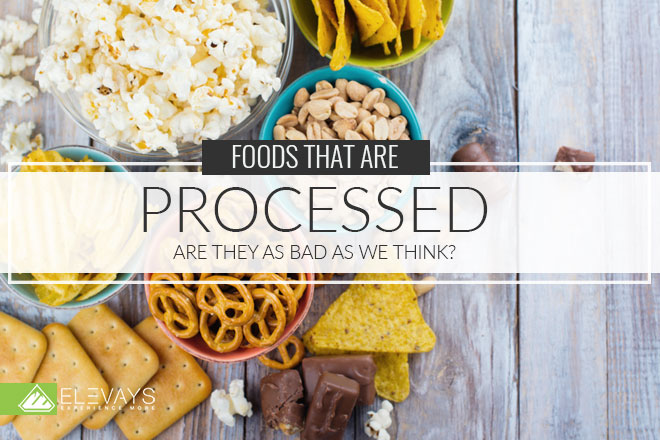It might be easy to see where I’m going with this one. Processed Foods vs. Whole Foods. Which one wins out? Obviously, whole foods- by a light year! You probably know whole foods are better for you but maybe you don’t know why processed foods aren’t. Let’s get the easy and obvious one out of the way: whole foods, the best option always.
Whole Food is King
Whole foods are foods that are in their natural state, no processing, no artificial ingredients. Whole foods are nutrient dense; packed with vitamins, minerals, antioxidants, polyphenols, healthy fats, carbohydrates, and fiber– no added sugar, sodium, unhealthy fats; no BS.
Ideally, a whole food is a food with one ingredient: apple, potato, chicken. A processed food will have extra junk: added preservatives, sugars, dyes, bad fats: apple sauce with added sugar, prepackaged mashed potatoes, chicken fingers.
TRUTH BOMB:
You’re
Already killing it!
If You Were More Consistent With Your Wellness Routine, You’d Be Unstoppable.
Conventional vs. Non-GMO/Organic
Your first question is probably “what if a package says non-GMO, natural, organic, fresh, local?”. The answer is, that doesn’t make them whole foods. If something is non-GMO that just means no genetically modified organisms were used in the process of cultivating, harvesting, raising the product itself. Organic means that no pesticides, herbicides, or insecticides were used. “Fresh” is just a buzzword- it means nothing, same with “natural”. Local could be promising. If you pick up vegetables from the farmer’s market down the street from the farmer you know on a first name basis, it’s most likely fresh and harvested with ethical practices.
The difference to note here is that an organic apple is going to be better than a non-organic apple because technically if that non-organic apple is genetically modified and was sprayed with pesticides- its chemical composition is changed and it is no longer in its natural state. It has a different nutrient content than the organic apple.
There are a plethora of benefits when it comes to eating whole foods. Whole foods have amino acids, vitamins, minerals, naturally occurring sugars, fatty acids, fiber and tons of other nutrients that satisfy us and work with our bodies to reach an optimal state of wellness.
The Dangers of Processed Foods
To prevent spoiling, processed foods go through artificial agent washing. Basically, processed food is food that has undergone some type of change before being ready to hit the shelves. The bad news? Processed foods make up 60% of the average American’s diet. The worse news? Heavily processed foods have been linked to
- Constipation
- Bloating
- Fatigue
- High cholesterol
- Increased blood pressure
- Depression
- Insulin resistance
- High blood sugar
- Chronic pain
- Inflammation
- Acne
- Obesity
- Nutritional deficiencies including vitamins and minerals
- Osteopenia
- Anemia
- Some cancers including colorectal and stomach
- Diabetes
- Coronary heart disease
When we eat processed foods we’re not only consuming empty calories, extra sugars and bad fats, but we’re also missing out on the essential nutrients our bodies need. Because processed foods have their natural composition altered in some way- we are never satisfied. Neuroscientists link overeating and food addition to high amounts of refined sugar and fats in our diets- and fat, sugar, and salt are the usual suspects found in processed foods. They make our taste buds crave more and more, and never quite stop.
A 2018 study examined the eating habits and medical records of nearly 105,000 healthy adults and discovered that a 10% increase in processed foods correlated with a 12% increase in risk for cancer.
Certain types of processed foods like processed meats have been linked to chronic disease and other negative health effects. Processed meats include any meat that is cured, canned, dried. Think bacon, jerky, corned beef, and salami. These meats are loaded with preservatives and additives-all known to have serious health effects.
Top Processed Foods to Avoid
- Processed meats and lunch meats
- Convenience and fast food meals
- Sugary beverages (yes diet soda, sweet tea, juice, sports drinks)
- Margarine
- Artificial sweeteners
- Granola bars
- Refined grains
- Store bought baked goods
- Potato chips
- Breakfast cereals
(If it sounds bad- avoid it)
Whole Foods To Add To Your Shopping List
- Fresh fruits and vegetables
- Wild caught fish
- Organic and grass-fed meats
- Nuts, seeds
Minimally processed foods that are still good:
- Olive oil (organic & cold pressed)
- Plain yogurt/kefir
- Natural nut butters
- Canned and frozen veggies
- Frozen fruits
Sources:
- Anonymous. “Whole Foods vs Processed Foods.” Down to Earth Organic and Natural, 9 Mar. 2018, www.downtoearth.org/articles/health-tips/11786/whole-foods-vs-processed-foods.
- “Whole Foods vs. Processed Foods: Why Less Is Actually Better.” Food & Nutrition Magazine, 8 May 2017, foodandnutrition.org/blogs/stone-soup/whole-foods-vs-processed-foods-less-actually-better/.
- https://draxe.com/processed-foods/





READ the Latest
Breakfast
Longevity
Health Habits
Health Habits